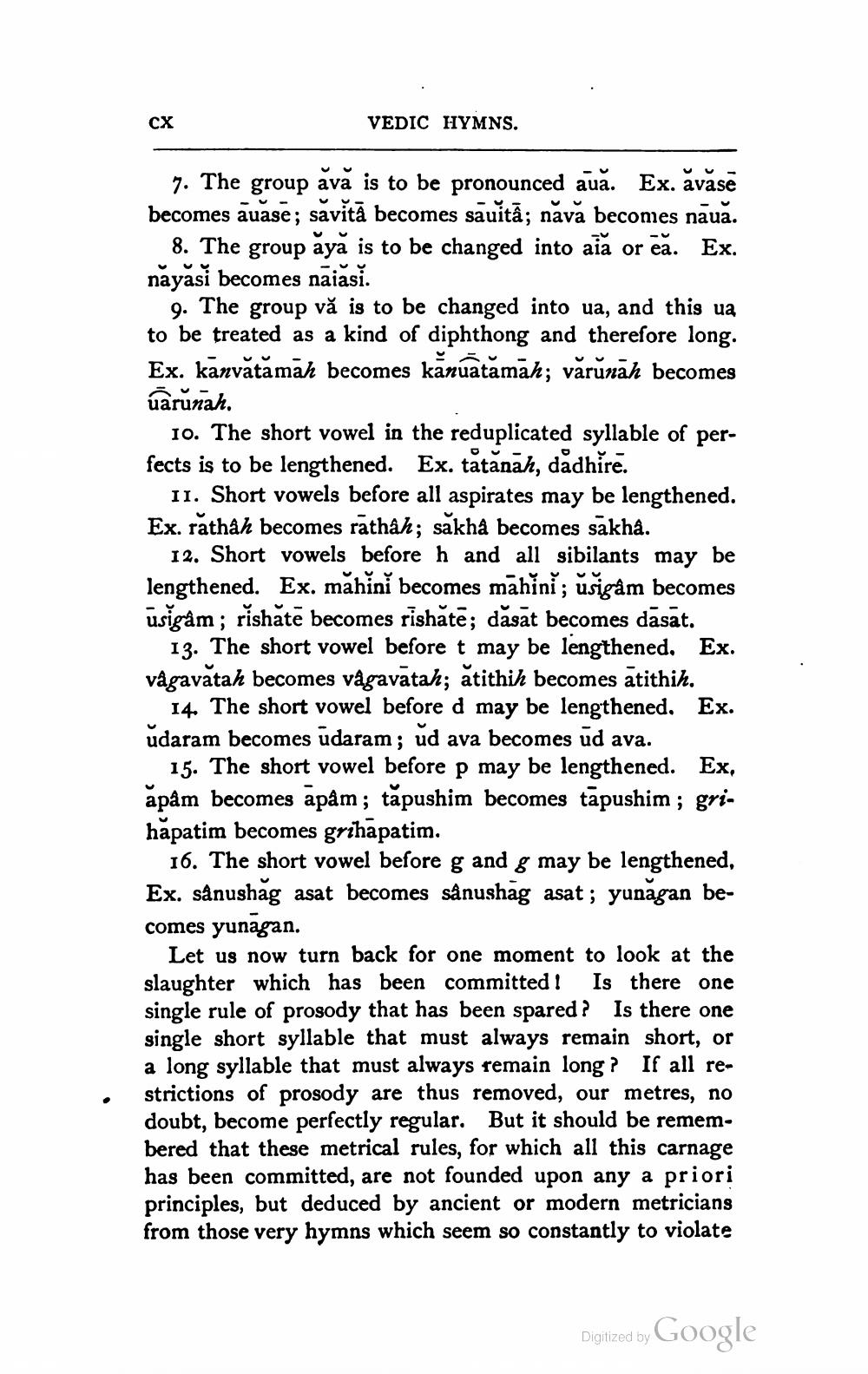________________
CX
VEDIC HYMNS.
7. The group ava is to be pronounced auă. Ex. avase becomes auase; savita becomes sauita; nava becomes nauă. 8. The group aya is to be changed into aia or ea. Ex. nayasi becomes naiasi.
9. The group vă is to be changed into ua, and this ua to be treated as a kind of diphthong and therefore long. Ex. kanvătămah becomes kānuatamah; varunah becomes uarunah.
10. The short vowel in the reduplicated syllable of perfects is to be lengthened. Ex. tatanah, dadhire.
11. Short vowels before all aspirates may be lengthened. Ex. rathâh becomes rathâh; sakhâ becomes sakhâ.
12. Short vowels before h and all sibilants may be lengthened. Ex. mahini becomes mahini; usigâm becomes usigâm; rishate becomes rishate; dasat becomes dasat.
13. The short vowel before t may be lengthened. Ex. vâgavatah becomes vâgavatah; atithik becomes atithik.
14. The short vowel before d may be lengthened. Ex. udaram becomes udaram; ud ava becomes ud ava.
15. The short vowel before p may be lengthened. Ex, apâm becomes apâm; tapushim becomes tapushim; grihapatim becomes grihapatim.
16. The short vowel before g and g may be lengthened, Ex. sânushag asat becomes sânushag asat; yunagan becomes yunagan.
Let us now turn back for one moment to look at the slaughter which has been committed! Is there one single rule of prosody that has been spared? Is there one single short syllable that must always remain short, or a long syllable that must always remain long? If all restrictions of prosody are thus removed, our metres, no doubt, become perfectly regular. But it should be remembered that these metrical rules, for which all this carnage has been committed, are not founded upon any a priori principles, but deduced by ancient or modern metricians from those very hymns which seem so constantly to violate
Digitized by Google




